The Downfall Of The Star Wars Franchise
Good morning,
evening, and afternoon. I am Reveream, critical commentator of pop culture content

For many decades, Star Wars has been considered the
undisputed hugest film series in cinematic history. Ever since the release of
the first film in 1977, George Lucas' fantasy space opera has created a
franchise kingdom that has become an immortal piece of pop culture. However in
recent years, after the series was bought in acquisition by Disney, the
franchise seems to be going through a slump. Merchandise sales have begun to
plummet and long time fans have begun showing a distaste for the series ' new
storyline. Now, for the first time ever, a Star Wars film, Solo: A Star Wars
Story, has actually flopped at the box office, and there are growing concerns
about whether the upcoming Episode IX will be able to satiate an increasingly
displeased audience.
What happened to this franchise? Has Kathleen Kennedy and
her incompetence led the franchise into the ground, or was it doomed earlier,
ruined by the bad aftertaste of George Lucas prequel trilogy? Some people have
even speculated that the franchise was showing fatigue as far back as Return of
The Jedi, and it's ridiculous Ewoks. In this analysis I am going to take a look
at the course the Star Wars franchise has taken, and why it may be in danger of
losing its pop culture relevance
The Making of a Modern Myth:

The story of the making of Star Wars is a well documented
look at the imagination at its finest. George Lucas combined a variety of
fictional genres, historical events, and metaphysical religions and structured
them using Joseph Campbell's Heroes Journey to create a Modern day cinematic
myth, the first of its kind. The film managed to simultaneously be a space
opera, a war film, a medieval fantasy, a western, and a kung fu film all in one.
This combination of genres, along with innovative special effects, brought a
hitherto unseen audience appeal, and for decades the franchise lived on in the
form of the Expanded Universe and video games.
The Prequel Trilogy :

In 1999, George Lucas released The Phantom Menace, the first
of his Darth Vader prequel trilogy. While the film and it’s two sequels, Attack
Of Clones and Revenge of The Sith were box office goldmines and lauded during
their time by notable critics such as Roger Ebert, the recent era has not been
kind to the prequel trilogy. Perhaps most famously, in 2010, RedLetterMedia
released a series of in-depth reviews of the prequel trilogy, showing them to
be badly written and directed films with terrible dialogue, nonsensical plots,
wooden acting, lazy cinematography, and an overabundance of CGI, as well as theorizing
that the positive reviews that the films initially received were in fact the
result of fan hype and studio bribery.
After these reviews and others, the
Prequel trilogy was viewed negatively by most audiences, with the mass
conclusion being that George Lucas sacrificed his artistic integrity for greed
and spectacle, and the Star Wars franchise was seen as one that exhausted
itself into mediocrity. With no future films being announced, it seemed that
Star Wars may be permanently retired from pop culture.
Disney Buys Star Wars:

In 2013, Disney announced its acquisition of the Star Wars
brand from George Lucas, and soon after that, it announced a new Star Wars film
from notable sci fi director J J Abrams. Fans were mostly positive about this
news. After the disappointing Prequel trilogy and nearly a decade of no new
films, fans were more than ready for a franchise reboot. Disney seemed like a
safe bet for the franchise given the success of the MCU, the new head of the Star
Wars franchise, Kathleen Kennedy, had been famous for decades for producing some
of cinema’s greatest films such as ET and Jurassic Park, and JJ Abrams was
probably the most famous sci fi director at that time. It appeared that the
Star Wars franchise was about to go through a renaissance.
Cancelling The
Expanded Universe: The First Sign Of Trouble

Despite the decades long waiting periods between films, Star
Wars was at the forefront of pop culture throughout the , and perhaps it’s most
instrument of relevance was The Star Wars Expanded Universe. Starting in 1978
with Alan Dean Foster’s Splinter of The Mind’s Eye, the Expanded Universe
allowed fans to access the Star Wars Universe not just through the films but
all kinds of entertainment mediums, such as literature, comics, roleplaying
games, and video games. George Lucas encouraged the Expanded Universe, as it
allowed fans to create the Star Wars universe for him, and kept Star Wars
relevant in their minds despite years of no films.
In April 2014, LucasFilm announced that it would be
classifying all star Wars material besides the original and prequel trilogies
and the Clone Wars television series under the non canon Legends brand in
preparation for the new wave of Disney films. For many fans, it meant that the
characters they had fallen in love with, such as Admiral Thrawn, Mara Jade
Skywalker, and Galen Marek were now being rendered obsolete. While some fans
were outraged at this, others were more accepting, stating that the Expanded
Universe’s vast library made it inaccessible for new fans to navigate through,
and that a more streamlined continuity could make for a potentially better
story.
The Force Awakens:

In December of 2015, The Force Awakens was released into
theaters. While it was a guaranteed financial success, several fans of the
franchise had noted a startling lack of originality. It seemed to repeat all of
the plot points of the original film. The protagonist Ray appeared to be a
completely bland character who seemed to acquire skills out of nowhere, whereas
the villain, Kylo Ren, seemed to just be a whiny fanboy of Darth Vader, which made no sense considering that Darth Vader ended up betraying and destroying the original Empire. The character of Cameron Poe seems like a
discount Han Solo, the character of General Hux seemed like a discount Grand Moff Tarkin, and the character of Mas Katana seemed like a discount Yoda. The character of Finn seemed to have a confusing motivation,
as he is motivated to join the rebels…by the death of Stormtrooper? Let’s be
honest, Finn’s just the token black guy. You know that it’s true! Don’t get mad
at me!
Also, The New Order was clearly
just the Empire, and its resurrection after Luke and rebels destroyed it in the
original trilogy is never given proper explanation. Perhaps worse of all was
the desecration of the character of Han Solo, whose character was reverted back
into a smuggler and then killed off by his own son. Despite these complaints, fans were still
willing to give Kathleen Kennedy another chance, hoping that the sequel would
clear up some of the characterization issues of The Force Awakens.
Rogue One: The Best Disney Star Wars film

In December of 2016 , Rogue One was released to critical
acclaim and a massive box office. Despite many reported behind the scenes
struggles, Gareth Edwards managed to put together a relatively enjoyable Star
Wars film. Although there was definitely a lack of proper characterization, the
film's exciting setpieces, cameos, and visual callbacks were enough to satiate
many Star Wars fans.
Centered around a rebel suicide mission to get the Death
Star plans, the film showed Star Wars from a ground combat perspective, feeling
very much like the WWII films that inspired the original trilogy. With such
exciting set pieces as a chaotic city battle, an assassination, an
infiltration, and a final land, air, and space battle, as well as the
breathtaking visuals of a Death Star strike at ground level, and the memorable
appearance of Darth Vader, voiced, perhaps for the final time onscreen, by
James Earl Jones, Rogue One was damn near everything a Star Wars fan would want
in their film. With Rogue One, fans were willing to forget their complaints
about The Force Awakens, and we're ready to see what Episode VIII would deliver
The Last Jedi: Aka the Fandom's Last Straw

Oh boy, The Last Jedi. Now before we talk about 2017’s The
Last Jedi, let's talk about Rian Johnson, Josh Trank, Colin Trevorrow, and
Kathleen Kennedy's vision and production methods for the series.
Kathleen Kennedy seems to like to hire new directors with
profitable sci fi films, and recruit them to helm the Star Wars films under her
close supervision, an approach is modelled after Kevin Feige’s strategy with
the MCU. However, unlike Feige, Kathleen Kennedy does not seem to have a clear
goal for the franchise, leading to terrible choices for directors
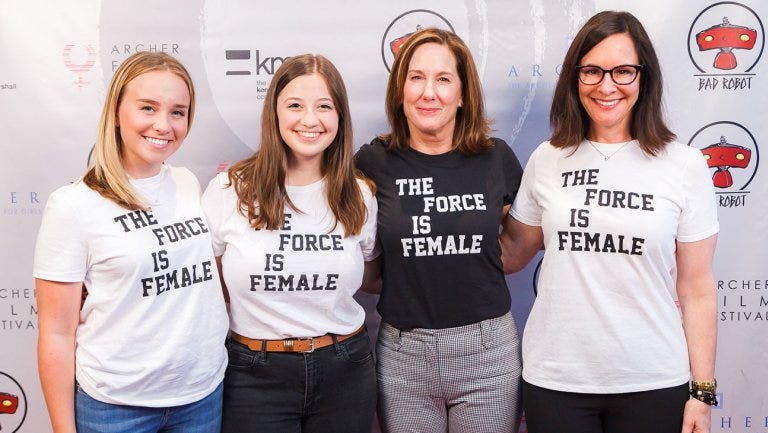
As stated, the first director Kathleen Kennedy hired was
J.J. Abrams, which seemed like a guaranteed choice given that he was
essentially the sci fi guru of Hollywood. While the Force Awakens was
unoriginal, it still held J.J.’s signature directing style and mastery of
suspense, allowing the film to be if not original, at least moderately
enjoyable.

Afterwards came Rogue One. Kathleen Kennedy’s first choice
of director was Josh Trank, who had just made a name for himself with his debut
sci fi film Chronicle. Any chance for Trank to show his skill however, was
dashed when he caused a large controversy on the set of the Fox studio film,
Fantastic Four, where he reportedly vandalized property due to the stress of
working on such a large project. Trank was fired from both Fan4stic and Rogue
One due to the controversy, with his release date from directors jail still
uncertain.
Following Trank’s firing, Kennedy hired sci-fi director Gareth
Edwards to helm Rogue One, with Edwards having just become a big name due to
his indie film Monsters and his 2014 reboot of Godzilla. Edwards was able to
turn Rogue One into a critical and financial success
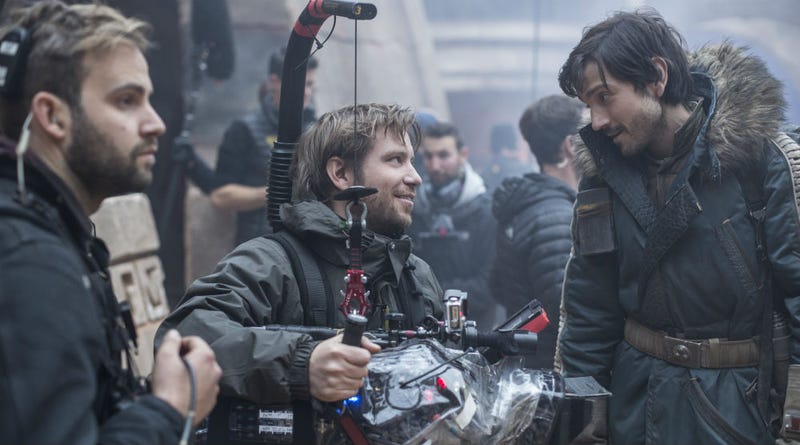
And then came The Last Jedi. For this film, Kathleen Kennedy
chose to hire another new director, Colin Trevorrow, to helm the project. Colin
was perhaps best known for Jurassic World, a 2014 reboot of the classic 90’s
franchise. While Jurassic World was only moderately received by critics due to
its nonsensical plot and bland characters, it was a box office behemoth, and it
seemed as though Trevorrow was destined to become a huge director. However,
this success would soon be undone by a film of Trevorrow’s own making, The Book
of Henry, an inconsistent mess of a film that dealt with themes like bereaved
parents, pedophilia, and vigilantism but had the tone of a 90’s Nickelodeon
movie. The film was so lambasted by critics that it is suspected, although not
confirmed, that it contributed to Colin Trevorrow being fired from The Last
Jedi a few months after The Book of Henry’s release.
After Colin Trevorrow’s exit, Kathleen Kennedy passed the
reins down to Rian Johnson, best known for the sci fi film Looper, which
similar to Josh Trank’s Chronicle and the Star Wars series itself, features
telekinetics fighting amongst unique aesthetics. Despite the fact that Looper
was criticized for its many plot holes, it seemed as though the franchise could
be trusted with Rian Johnson. However, this hope turned out to be false. What
ended up being revealed after the films was release was that after The Force
Awakens, J.J. Abrams stepped away from Star Wars, but reportedly left a game
plan for future directors to follow in order to give consistency to the
trilogy. However, Rian Johnson reportedly threw out these plans, instead opting
to improvise with what may be one of the most haphazard scripts of any recent
blockbuster.

The Last Jedi has so many problems, not just as a Star Wars
film but as a film period. The film has numerous plot holes, most notably
Admiral Holdo's refusal to tell Poe about her plan, leading to unnecessary
conflict. There are sequences that serve no purpose, most notably the Canto
Bight sequence. Rose Tico stopping Finn's sacrifice was annoying. Leia using
the force to float in space, despite the fact that no character, not even Yoda,
has ever shown such ability, looked absolutely ridiculous. The only reason the
Porgs exist is a desperate move to bump up the falling Star Wars toy sales. And
then there’s The New Order, who immediately and inexplicably seize power at the
beginning of the film, officially reverting the franchise back to the status quo
of the original series and thus negating all of the progress that the original
characters made.

Worst of all were the subversions of setups from The Force
Awakens. Apparently, Rian Johnson thinks that clever writing and good plot
twists just means subverting all possible payoffs, no matter how stupid it makes
the story. Snoke? Dead. Rey's Parents? Don't matter. Kylo seemingly becoming good by killing Snoke to save Rey? Nope, just a false subversion, he's still evil.
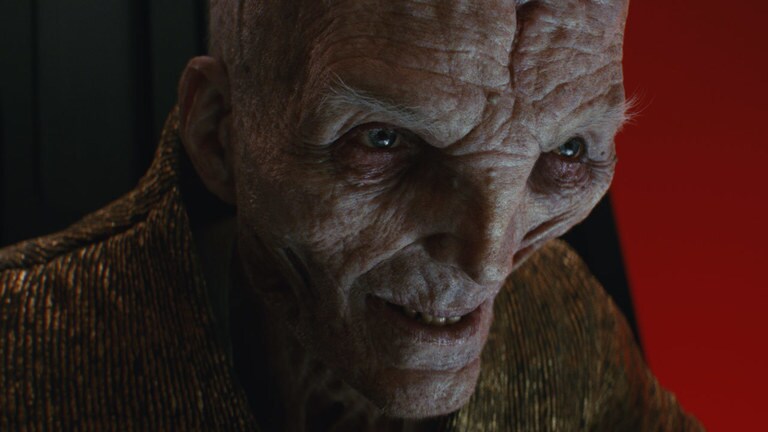
And then there is Luke Skywalker. After the character
assassination of Han Solo in The Force Awakens, we are now forced to watch Luke
Skywalker, arguably the most famous hero in cinematic history, the most iconic
epitome of good since Superman himself, devolve into a attempted-nephew-killing
misanthrope.
It is very apparent
by the way Luke is written that Rian Johnson did not understand Luke's
character at all in the original trilogy. In The Last Jedi, both Luke and Kylo
complain about how imbalanced the Force truly is, yet this was the exact theme
of the original trilogy. Obi Wan and Yoda believed that Luke rigorously training to be a Jedi and killing Darth Vader
was the only way to bring balance to the force, but Luke found a better way, by
sacrificing his training to rescue his friends, and by finding redemption in
his father, an act that arguably should have destroyed the dark side of the
force for good.
Now, however, Luke now hates the Force, has abandoned all of
his friends and family, and is even willing to consider murdering his nephew
for what he thinks a just a symptom of the Dark side. This is not the epitome
of a noble hero that audiences fell in love with in 1977, instead being a miserable
cowardly curmudgeon who spends his day drinking green milk from sea cow nipples.
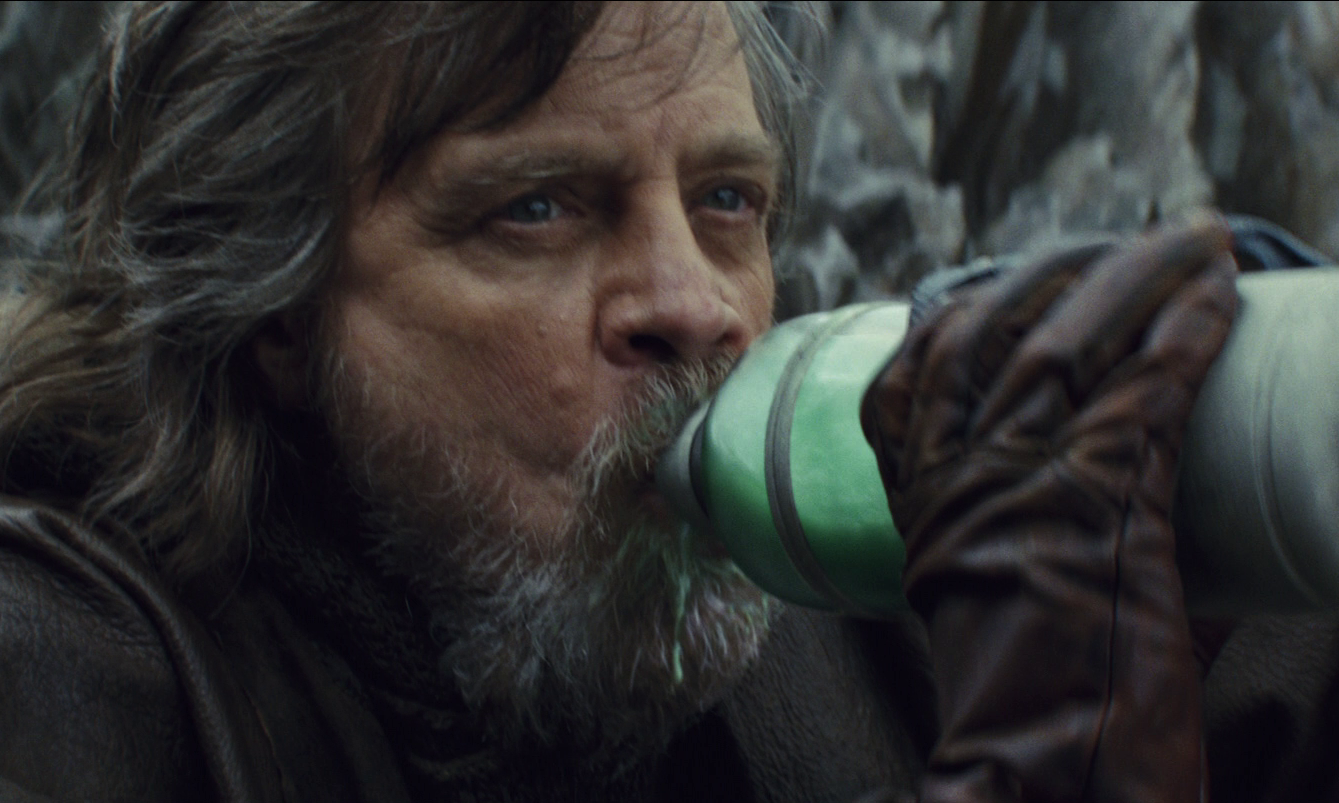
Even worse is his confusing and anticlimactic death where he
seems to appear on the battlefield, only to reveal himself to be hologram, only
for his real self to actually die moments later. It is a contrived web of
unnecessary plot twists that only serve to dilute the actual emotional impact
of his death.
Mark Hamill has made
numerous statements about how much he dislikes the changes to Luke Skywalker,
and many members of the fandom have as well. Along with the other flaws of the film, The
Last Jedi’s mediocrity seems to have officially divided the fandom, more than
any other Star Wars film before it. With large portions of the fandom voicing
displeasure and even threatening to boycott future films, it appears as though
The Last Jedi may be Star War’s hugest Shark Jump.
Solo: An Unnecessary Story
After the widespread audience backlash towards The Last
Jedi, things were not looking good for Star Wars. It got even worse when the
production troubles of Solo: A Star Wars Story became public. Lord and Miller,
directors of the acclaimed Lego Batman movie were reportedly fired more than
halfway into shooting because Kathleen Kennedy didn't like their comedic tone.
She hired veteran director Ron Howard to hopefully steer the ship on course,
but at the end of the day, it didn't matter.
Solo was like an inevitable box office bomb the moment its
underwhelming Super Bowl trailer premiered. Audiences were not feeling the lead
Alden, and it's release date in between Infinity War and Deadpool 2 seemed like
suicide, but more importantly, audiences
in general didn't want a Han Solo movie for numerous reasons
A) Han Solo doesn't need a backstory. He already has a
backstory in the original trilogy. He's essentially a selfish drug smuggler for
Jabba the Hutt, the Pablo Escobar of the Galaxy. After losing one of Jabba's
shipments, he goes on the run, and makes a deal with Luke and Obi Wan to
smuggle them in return for Jabba's payment. After bonding with Luke and
becoming smitten with Leia, he chooses to fight for the rebellion, abandoning
his selfish smuggler ways and becoming a true hero of the rebellion. This is
Han's character arc. Nothing more needs to be added.
B) The reason Han Solo is such a memorable and charismatic
character is because he had Luke and Leia to play off of. Fan's sarcastic selfishness allowed him to
have great chemistry with the selfless and responsible Luke and Leia, and this
chemistry is partially what made his character so memorable. Without Luke or
Leia to play off of, it massively decreases his charm
C) Han's character arc was completely and totally ruined in
The Force Awakens. Whereas at the end of the original trilogy, Han and Leia
seemed to be living happily ever after, the new trilogy showed this to be a
false hope. Apparently Han and Leia have birth to a demon seed, broke up, and
Han is smuggling again, until he gets killed by said demonseed. Yay.
Solo was released to only mild critical praise, with some fans enjoying, but others being underwhelmed by it's generic plot and annoying characters, especially the robot L33T, whose comedic attempts at a robot revolt and odd romance with Lando seemed out of place in the film. None of Solo's positive reviews were enough to convince audiences to flock to it, especially considering that they had just seen the far more spectacular space opera film, Avengers: Infinity War. It is unclear whether the film bombed because of it's production troubles, unremarkable quality, bad release date, backlash against the prior films, or a combination of these factors, but it was clear that the Star Wars franchise was officially in trouble.
Star Wars Battlefront
II: Microtransaction Massacre

While Rian Johnson
seemed to be sabotaging Star Wars on the cinematic front, EA was busy ruining
Star Wars in the video game community. For years, Star Wars was beloved by
gamers, with many games in the franchise, including Knights Of The Old Republic,
The Force Unleashed, and Battlefront becoming two of the most beloved video
games of all time. However, in 2013, gaming company EA DICE gained exclusive
rights to create all Star Wars video games, and they would soon create a
firestorm in the gaming community.
In 2017, EA released Star Wars Battlefront II, and it was
not received kindly. The game introduced a loot box scheme, which would
essentially incentivize players to receive unfair gaming advantages, perks, and
downloadable content by having the player use their real world money for in
game currency, with players who didn’t pay having to grind for almost 40 hours
to receive the same content. This controversially greedy decision caused
massive negative backlash, with EA reportly losing $3 billion in stock. Perhaps
most infamously, EA attempted to defend the loot box system in a Reddit post,
resulting in the post receiving 668,000 downvotes, the most in Reddit’s
history. While EA have stated that they intend to rectify the system, their
patches have only been moderately received, and it appears as Battlefront II
will go down as one of the most infamous video games in history.
Are The Originals
Completely Ruined?

The sanctity of the original films has been in question
since the 90’s, with George Lucas releasing re-edited versions of the originals
with new CGI and edited content, most famously changing the death of Greedo to
be an act of self-defense by Han Solo rather than cold-blooded murder. The
prequels did not help matters, retconning the Force to be based on
“midichlorians”, essentially changing the Jedi from religious monks into X-Men,
as well as portraying the Jedi as incompetent bureaucrats, and Darth Vader as
an annoying kid and whiny teenager. Despite these retconned changes, fans could
still enjoy the original films and enjoy the story of Luke, Leia, and Han and
their adventure to defeat the Empire.
Unfortunately, now, with the release of the new Star Wars
films, it appears that the continuity of Star Wars may be irreparably damaged.
With the exception of Rogue One, every Disney Star Wars film has been damaging
to the original Star Wars canon. In The Force Awakens and The Last Jedi, we see
the dissolution of Han and Leia’s relationship, the death of Han, the
depression and death of Luke, and the resurrection of The Empire. It appears as
though all of the character arcs and plot progress of the original trilogy was
for naught, and as such it only makes rewatching the original films somewhat
depressing, knowing that despite the characters
struggles and bonding, they will all be fated to die miserably in the
same circumstances they started off in.
Perhaps the most obvious and preferable way of dealing with
this is establishing your own head canon. As such, I personally consider only the original
trilogy and Rogue One to be canon, although I will give respect to the prequels
if necessary. However, The new Trilogy and Solo will be wiped from continuity,
only viewed as bad fan fiction rather than part of the actual Star Wars story.
Rian Johnson's New Trilogy: Can There Be Star Wars
Without The Skywalkers?
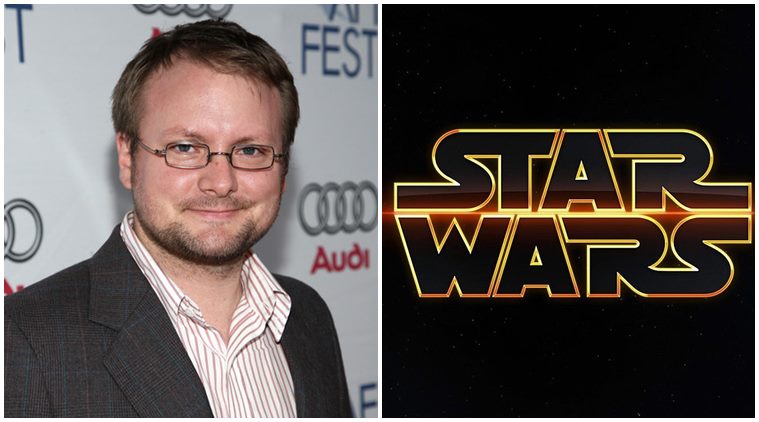
With Han Solo dead, Luke seemingly dead, and Carrie Fisher
dead in real life, it appears that the entire cast of the original trilogy have
been rendered obsolete from the series. The question is, without them, can the
series continue? It would be entirely appropriate to call Star Wars "The
Skywalker Saga", as the original and new trilogies seem to follow Luke, whereas
the prequel trilogy followed his father Anakin. Without any Skywalkers, will
people still go to see Star Wars films? Rian Johnson has been announced to create a
new trilogy after Episode IX, to take place far after the events of the current
saga, but given Johnson’s controversial direction of The Last Jedi, it is
questionable whether fans are anticipating or dreading his trilogy. More
importantly, although his trilogy promises a new story, one could easily argue
that the story of Anakin, Luke, and the rise and fall of the Empire IS the
story of Star Wars, and it is uncertain what diverting from the story will lead
to. Every Star Wars films besides one has had the appearance of at least one
member of the Skywalker family. The only one that didn't, Solo: A Star Wars
Story, bombed spectacularly. After Episode IX, where can the Star Wars
franchise go? Will it regurgitate its Sith empire vs Jedi Rebellion plot? Will
there be yet another Death Star weapon? With no original characters to usher us
into the new world, can we even call it Star Wars anymore?
Star Wars
Oversaturation: Forcing a Franchise Down Our Throats
One of the aspects of the Star Wars franchise that allowed
it to endure so long in the zeitgeist was the rarity of it’s films. After the
conclusion of the original trilogy, it wasn’t until almost 2 decades later than
George Lucas released his prequel trilogy, and it wasn’t until almost a decade
after prequel trilogy completed that Disney began their reboot trilogy. Such a
long time between release dates, combined with the fact that Star Wars was
essentially the archetypical cinematic universe, the franchise had years to
saturate with fans, who because of the franchise’s vast world building, had
topics of discussion and speculation to keep the franchise relevant for years.
Now, with Disney releasing between 1 and 2 Star Wars films every year since
2015, combined with the subpar quality of said films, and the competition of
similar and better blockbuster franchises such as the MCU, audiences may be
starting to grow tired of Star Wars.
It’s merchandise has been notably
plummeting, with numerous toy companies apparently angry at their lack of
sales. Now, with Solo, a Star Wars film has actually flopped at the box office,
something that would have been unheard of a decade ago, a flop which caused Disney to cancel it's upcoming and unwanted Boba Fett and Obi Wan spin off films. Kathleen Kennedy's tenure as Star Wars head is reportedly in jeopardy, with there being reports of a secret conference call between Disney executives in which Kathleen Kennedy was ridiculed by Bob Iger in front of the entire Disney executive staff for her incompetence at managing the franchise. Disney’s approach towards Star Wars has been quantity over quality, and as shown by the franchise’s increasing ability to
make less and less money, if they continue with this approach, it may turn Star Wars from one of the
world’s most iconic brands into one of its most worthless.
Star Wars And The Simpsons: A Tale Of Two Dead Franchises
In my opinion, I consider the legacy of Star Wars to be very
similar to that of another former pop culture icon, The Simpsons.
When the Simpsons first premiered in 1990, it was
revolutionary for its time, restructuring the landscape of both animation and
television and becoming a monumental icon of pop culture. However as time
pressed on, it's innovations to animation and comedy were rendered obsolete by
new shows such as South Park, Family Guy, and even Groening's own Futurama.
Combined with a constant assembly line of episodes with continuously decreasing
quality, and it's no wonder that the once innovative Titan of television has
now considered a footnote of television nowadays.
Similarly, the Star Wars franchise seems to be increasingly
obsolete, especially with the existence of cinematic universes such as the MCU.
The visual and writing techniques that George Lucas used and innovated have now
been used to create films far beyond the scope of any Star Wars movie. And now,
like the Simpsons, there appears to be an oversaturation of increasingly
disappointing material. With the failure of Solo, and the potential backlash
against Episode IX, it appears as though Star Wars and The Simpsons are soon to
be together in realm of pop culture limbo
Should Star Wars Just
End? Artistic Quality vs Franchise Quantity
Rich Evans of RedLetterMedia has stated that he wishes that
the Star Wars story would have ended with Return of the Jedi, and it is hard to
very disagree with his assessment. Every entry after the original trilogy,
besides Rogue One, seems to be increasingly more damaging to the original
trilogy. Quality is superior to quantity, and brevity is the soul of wit. Every
story must have a satisfactory conclusion, and continuously retconning and
delaying that conclusion to force out more entries of the story is guaranteed
to kill any life and any enjoyability that the story originally had.
It is sad to see the story of Star Wars butchered, but it is
surprising? Ever since the appearance of the Ewoks, it was clear that Star Wars
was becoming more and more focused on merchandising. This was especially true of the prequel
trilogy, whose unnecessary existence seemed to be justified only by its
merchandise sales. The reason that fans initially gave the prequel trilogy a
pass was because George Lucas still owned the series and was trying new ideas,
so there was still a pretense of artistic merit. Now that Disney owns it, there
is no way to deny its artistic bankruptcy. These films no longer seem like the
artistic vision of a man with a wild imagination, but instead generic
blockbusters written by a studio’s demographics
marketing and franchise merchandise executives, with directors being hired to
give a brush stroke of shallow creativity.
Ultimately, I hope to see a new wave of creative films,
where instead of buying the rights to popular franchises and making soulless
reboots, studios hire good visionary screenwriters who want to make new
memorable franchises, as George Lucas did a long long time ago.
What do you guys think? Did Kathleen fuck it? Did George
fuck it? Should they make more movies? Should they stop? You judge, you decide,
like, comment, and subscribe.
Comments
Post a Comment